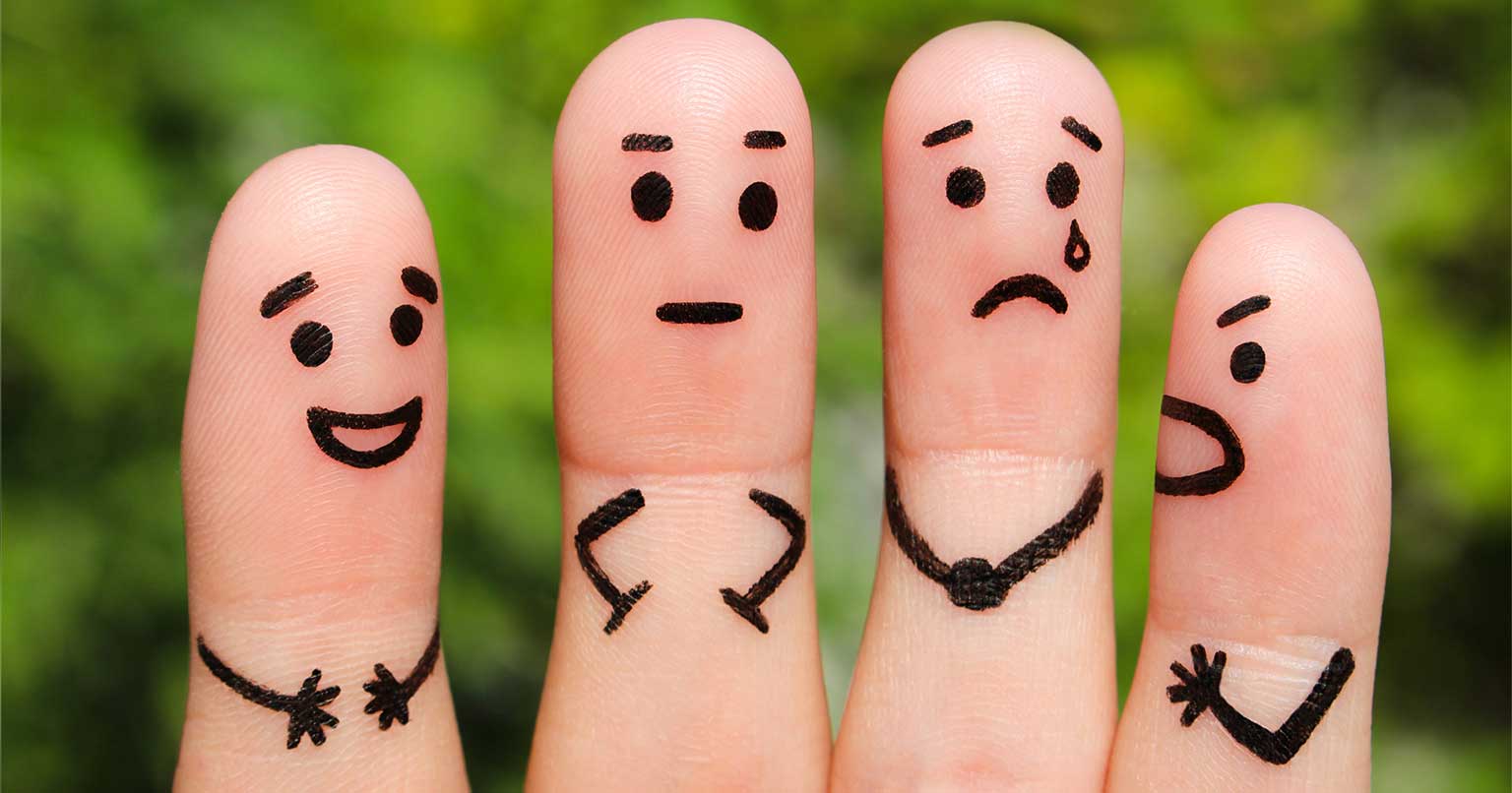Being human means that we have to make daily decisions, regardless of how small they are. From what to have for dinner to choosing a career or even how to be in a relationship, decisions must be made. Yet, sometimes, these aren’t made with as much clarity as others. Mental health has a great deal of interaction with decision-making, and how we feel, think, and perceive the world can significantly impact our choices. Understand how mental health impacts your decision-making processes to improve your cognitive functioning, emotional stability, and overall well-being.
We will explore mental health’s effect on decisions and the cognitive impact of mental health, with some keys that outline how it can be improved to further help improve decision-making. If you are on the other end, facing your issues or trying to make others realize why mental health affects their decisions, aim to educate them with useful knowledge about making healthier choices.
Mental Health and Decision-Making
Mental health and decision-making are closely connected. The way people evaluate their choices can impact their mental well-being, influencing how they see different parts of their lives, whether personal or professional. Challenges like depression, anxiety, and stress often make it harder for people to make decisions.
Our brains produce complex cognitive processes when making a decision. A person might weigh the pros and cons, the consequences of the action, and the overall risks. But if psychological health moves backward, it might work based on impairments within the processes. Anxiety creates overthinking, whereas depression makes a person indecisive or lacking motivation to decide. In extreme cases, if left untreated, mental disorders may make a person decide with little thinking or wrongly.
The Influence of Mental Health on Cognitive Processes
Our cognitive function entails processing information, making judgments, and drawing conclusions. The cognitive impact of mental health is profoundly deep, as mental health conditions such as anxiety, depression, and even stress impair our cognitive functions, making decision-making particularly difficult.
As depression is often associated with negative thinking, people become easily unable to cope with elementary decisions. People can get analysis paralysis: they overanalyze all the possible outcomes to such an extent that they delay making decisions or even avoid them completely. A person with anxiety disorder tends to think about worst-case scenarios, which creates the sense that a decision will be too tough to make.
Anxiety can also cloud decision-making by heightening the perceived risk or uncertainty of a situation. This heightened stress response may make individuals overly cautious or unable to make quick, decisive choices. Chronic anxiety can also lead to a constant state of worry, further preventing clear thinking and decisive action.
How Mental Health Influences Choices
How mental health influences choices varies from individual to individual, but some patterns tend to emerge. Untreated mental health conditions may cause people to make decisions based on fear, guilt, or negative self-perceptions rather than rational thought processes. For instance:
| Mental Health Influences Choices | Description |
Depression | Usually characterized by decision fatigue and apathy, where an individual simply avoids making any decision at all. A person might end up feeling hopeless or trapped in the belief that no decision will make any difference, resulting in further isolation and inactivity. |
Anxiety | An individual suffering from anxiety often makes decisions out of fear and creates overly complicated choices or refuses to decide at all. They tend to focus on worst-case scenarios and are often unable to think of realistic options. |
Bipolar Disorder | When someone is bipolar, he/she can make impulsive decisions when manic-crazy financial investments, changes in relationships, etc. That is again because of the emotional high of a manic state. |
Most mental health conditions distort perception and guarantee illogical choices. It may focus more attention on small details or completely avoid something very important about a situation while being emotionally flooded. This interference will then negatively influence the decision-making process, leading to choices that are not in line with one’s best interest or even larger goals.
The Role of Emotional Health in Everyday Choices
Emotions play a central role in guiding what feels right and what to avoid. They are deeply intertwined with decision-making and emotional health for a simple reason: emotions act as valuable signals. Feelings of joy or excitement often steer us toward positive choices, while sensations of dread or discomfort can serve as warnings to proceed with caution.
Then, when emotional health is compromised, signals get mixed up. An example would be that depression might also cause a loss of confidence to trust emotional responses and may make no decision whatsoever. However, a person who is in a highly emotional state might be angry, sad, or anxious and may make irrational decisions that they haven’t thought much about.
Healthy, well-thought-through decision-making involves emotional regulation. It is likely that people who are in balance emotionally will make thought-provoking, measured decisions that are aligned with their goals and values. Enhancing emotional intelligence may assist in building a better ability to handle stress and anxiety, both common precursors to emotional storms when deciding.
Emotional Health and Impulsivity
Another aspect of decision-making and emotional health is impulsivity. Impulsivity typically leads from emotional instability: decisions are made “in the heat of the moment,” usually with little or no reflection. An angry person tends to make rash judgments while under stress or experience mood swings, and frustration often causes people to act in ways they will later regret.
Impulsivity can also be manifested as a symptom of other mental illnesses, such as ADHD or borderline personality disorder. If the emotions are not regulated or understood, a person becomes more susceptible to making impulsive decisions, which can seriously affect a person’s health at personal, professional, and relational levels.

Impact of Anxiety and Depression on Decision-Making
Anxiety and depression are two of the most common psychological disorders that can significantly affect a person’s ability to make decisions. Retirement, a well-known life event, is often accompanied by anxiety, making the transition to a work-free life challenging for many retirees. Understanding how these conditions influence decision-making can be essential for managing symptoms and making more informed choices during this phase of life.
Anxiety’s Effect on Decision-Making
Anxiety often results in overthinking and second-guessing which can severely affect the power of decision-making. When somebody feels anxious, their brain somehow focuses on the worst-case scenarios that amplify fears and doubts. This kind of a high-stress level might prevent an individual from weighing options clearly, causing indecisiveness or avoidance.
For example, a cash-strapped person may fear making key financial decisions right up to the point that their situation appears to become better if they had only made the decisions. Fear of making the pro-choice may freeze the person into not making the decision.
Depression’s Impact on Decision-Making
Depression and decision-making are often seen with unmakeable links. A depressed person will feel hopeless and helpless, believing nothing will be made better even with a decision or believing their decisions won’t matter anyway. As a result, there can be decision paralysis because a person cannot even decide what to wear or eat.
Also, depression muddles the perception of people about their self-worth. Therefore, they make poor choices based on what going on with themselves now. For instance, they will settle for unhealthy relationships or decisions that will push them further away, as they feel they deserve nothing better.
How Mental Health Disorders Influence Decision Patterns
Mental health disorders can present unique patterns of decision-making. The symptoms of most mental health disorders cause people to make decisions they wouldn’t normally make. For example:
- Obsessive Compulsive Disorder. The choices of an individual with OCD may be based on repeating, compulsive decisions. Such decisions are based on irrational fears and anxieties, and this individual will get reassurance or complete a ritual before making a decision.
- PTSD Decisions. Trauma and PTSD survivors are influenced by past experiences to avoid situations or people that remind them of the traumas. Such behavior helps avoid unwanted, externally imposed restrictions but definitely can limit their choices and predispose them to unhealthy patterns.
These mental health problems would consequently develop trends leading to choices less determined by logic and more prone to fear, guilt, and other mental conditions. Therefore, knowledge of these trends is necessary to undertake relevant measures to alleviate challenges and enhance decision-making skills.
Strategies for Improving Decision-Making Through Mental Health Support
Fortunately, a person’s decision patterns are not permanently affected by mental health. Given the right support, people can learn how to improve their decision-making and manage the challenges of mental health. Some strategies for better decision-making include:
Therapy and Counseling | For this, professional therapy or counseling can be beneficial in identifying the correlation between mental health and decisions. Cognitive-behavioral therapy can particularly help when unhealthy cognitive distortions and thought patterns have begun negatively impacting a person’s decisions. |
Mindfulness Practices | Mindfulness is the exercise that urges a person to stay present and be in touch with the thoughts, feelings, and sensations of their body. This practice helps to reduce anxiety and stress, which makes it easier for people to make decisions based on less emotional interference. |
| Developing Emotional Intelligence | This can be developed and aid an individual in better understanding and regulating his or her emotions, enhancing the decisions that must be made. Becoming aware of one’s emotional triggers or responses and learning better ways to manage them. |
Professional Support for Decision-Making Challenges
When decision-making challenges feel overwhelming, it’s essential to seek professional support. A therapist, counselor, or coach can provide the necessary tools and insights to help individuals navigate choices with clarity and confidence. Mental health professionals can assist in exploring the root causes of indecision, identifying patterns, and offering strategies to manage the emotions that influence decision-making.
In addition to professional guidance, incorporating practices like meditation can be an effective coping therapy. Meditation fosters mindfulness, helping you stay present and grounded, which can ease anxiety and create mental space for clearer decision-making. By blending expert support with mindfulness techniques, you can develop the skills needed to approach life’s decisions with a calm and focused mind.
Prioritizing Mental Health for Better Decision-Making
Ultimately, mental health and decision-making go hand in hand. By prioritizing mental health, individuals can make clearer, more informed choices that lead to better outcomes in their personal and professional lives. Taking steps to address mental health challenges—whether through therapy, mindfulness practices, or building emotional intelligence—can enhance decision-making abilities, allowing individuals to approach life with greater confidence and clarity.

If you or someone you know is struggling with mental health and decision-making challenges, reaching out for help is the first step toward a brighter, more empowered future. At Friendly Recovery, our intensive outpatient program and partial hospitalization program programs are designed to provide comprehensive support for those facing mental health struggles. With tools like therapy, mindfulness techniques, and personalized care, we help individuals address the root causes of their challenges and regain control over their lives.
Contact us today to learn how our programs can help you or a loved one find clarity, confidence, and lasting wellness.
All calls are 100% free and confidential.
Frequently Asked Questions
- How does mental health affect decision-making?
Mental health plays a significant role in decision-making by influencing cognitive processes, emotional regulation, and how we perceive choices. Conditions like anxiety, depression, and stress can impair our ability to think, overcomplicate simple decisions, or cause us to avoid making choices altogether. A negative mental state can distort judgment, leading to decisions that may not align with our best interests.
- Can therapy help improve decision-making skills?
Yes, therapy, particularly Cognitive-Behavioral Therapy (CBT), can help individuals improve decision-making by addressing the cognitive distortions and emotional patterns that affect their judgment. A therapist can guide individuals in recognizing the underlying mental health challenges and offer strategies to make more rational, balanced decisions, especially during times of emotional distress.
- How can anxiety impact the choices I make in everyday life?
Anxiety can cause individuals to become overly cautious, second-guess their choices, or experience decision paralysis. It may lead to overthinking the potential consequences of decisions, focusing on worst-case scenarios, and avoiding action. This heightened sense of fear and stress makes it difficult to make clear, confident choices, both in personal and professional settings.
- Why do people with depression struggle to make decisions?
Depression often leads to a lack of motivation, low energy, and feelings of hopelessness, which can make even the simplest decisions feel overwhelming. People with depression may feel that their choices won’t matter or that they are incapable of making the right decision, resulting in indecision or avoidance. This can negatively impact their daily functioning and overall quality of life.
- How can mindfulness help improve decision-making?
Mindfulness helps by encouraging individuals to stay present and reduce the impact of overwhelming emotions, such as anxiety or stress, on their decision-making process. By practicing mindfulness, individuals can approach decisions with greater clarity, awareness, and emotional balance, leading to more thoughtful and informed choices. Mindfulness practices can also help reduce impulsive decisions by promoting calm and focused thinking.










